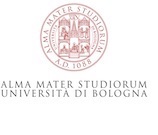LUCIANA PARISI
|
|
The course considers the ways in which the political management of the Covid-19 pandemic has seen overall variable mixtures or combination of disciplinary techniques of controlling movement of bodies and populations across borders, that is techniques originating within the historical context of the “plagues” (for instance segmentation, zoning, partition, forced immobility) together with biopolitical strategies of racialisation which originally developed with relation to endemic kinds of illnesses that have literally exposed some lives to death, while preserved others. At the same time, the course argues that the return of such techniques is to be analysed within a new technosocial milieu of pervasive connectivity. In particular, the interlacing of computation and communication becomes important for the proliferation of extremely varied political movements (from #blacklivesmatter to #qanon, from mutualism to conspiracy theories). The course reflects on how the technopolitics of the Covid-19 pandemics have posed a novel challenge to political imagination by asking questions such as: if the ongoing pandemic represents only the first of a likely series of catastrophic planetary events, how does one bring about the 'death of biopolitics' as a specific mode by which power has taken on the problem of the human species? What different political imaginaries can be opened that do not reproduce the racial grammar of biopolitics, while still enabling ways of acting within such crisis? If the political imagination of the modern age was marked by the idea of “social revolution”, how does technology figure in contemporary aspiration towards “systemic abolition” as a constituent part of revolutionary practices? What do concepts such as ethnofuturisms, cosmotechnics, speculative computation, the red stack and the technosocial contribute to such task? The course will be divided in two blocks: the first block will be dedicated to the contemporary study of biopolitics, necropolitics, and control in the context of intelligent platforms of communication and connectivity. The second block will be focusing on the possibilitiles of technopolitical imaginations that have become central to the question of systemic abolitions (such as racial capitalism at the core of SF Capital) today. |
|
|
|
|





